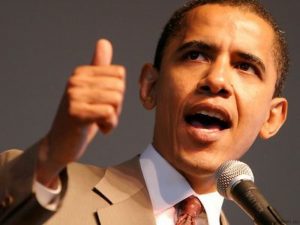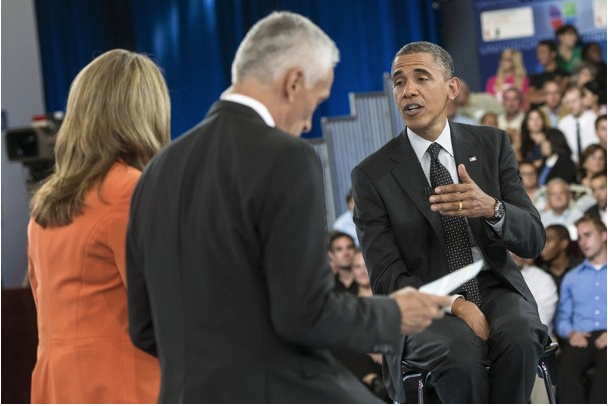Sunday, September 23, 2012
You’ve heard this before. On a crowded, rush hour subway, a man is  standing, sharing hand-space on one of the polls. He’s staring down at a woman sitting in front of him, holding her baby. Finally, he can’t help himself. “Lady, that’s the ugliest baby I’ve ever seen.” Another man, standing next to him is stunned by the comment and, seeing the angst in the woman’s face, speaks up. “Hey! You’re unbelievable. Apologize to this lady. NOW!!” Intimidated by the second man, the first man thinks for a moment and then turns to the woman, saying, “I’m sorry your baby is so ugly.”
standing, sharing hand-space on one of the polls. He’s staring down at a woman sitting in front of him, holding her baby. Finally, he can’t help himself. “Lady, that’s the ugliest baby I’ve ever seen.” Another man, standing next to him is stunned by the comment and, seeing the angst in the woman’s face, speaks up. “Hey! You’re unbelievable. Apologize to this lady. NOW!!” Intimidated by the second man, the first man thinks for a moment and then turns to the woman, saying, “I’m sorry your baby is so ugly.”
Some people familiar with this story think it’s about rudeness. I, on the other hand, consider it to be about dishonesty. I think it’s a textbook case of IDD, Intellectual Dishonesty Disorder, the most high profile example of which is none other than President Barack Obama. Technically, the disorder is a recurrent form of denial, a failure to admit to a shortcoming for the purposes of either reinforcing one’s self-image and/or misleading others. Its subject could be a relatively minor transgression such as rudeness to a stranger on a subway, or something more profound, such as failure to live up to a promise made to millions of Americans – not just to live up to that promise, but accept personal responsibility for why the failure occurred.
Last Thursday, in what has got to be one of the most remarkable interviews of this or maybe any Presidential election season, President Obama was interviewed by Jorge Ramos and Maria Elena Salinas at a Univision Town Hall meeting. With professional persistence not seen recently among mainstream television “journalists” (a job description I’m reluctant to use for most of them), the two Univision interviewers went after President Obama for his failure to live up to his prior campaign promises, to Latinos and to Americans in general. (The “Q:” and “A:” bold text in quotes is the actual language used by the interviewer and the President.)
The interview is best known for having produced the following comment by President Obama:
Q: “What is your biggest failure.”
A: “…and the most important lesson I’ve learned is that you can’t change Washington from the inside. You can only change it from the outside.”
Notice the subtlety of the denial. “You can’t…” making his failure to effect change a matter of general fact, as in “No one can…,” as if to say, “It’s not my fault, personally. It’s not possible, not for anyone.” Forget what he promised when he ran for office or, heaven forbid, the possibility that someone else (Mitt Romney?) could have succeeded “from the inside” when he, President Obama, didn’t. What he’s saying is, “You can’t hold me responsible for what no one could have done.”
The President’s comment about change from the inside or outside was not the only incidence of IDD in the interview.
Q: “Mr. President, I want to ask you something that is known as the “Obama promise,” and you knew that I was going to ask you about that. On May 28th, 2008, we had a conversation in Denver, Colorado, and you told me the following — and I’m going to quote you: ‘But I can guarantee that we will have, in the first year, an immigration bill that I strongly support.’
I want to emphasize ‘the first year.’ At the beginning of your governing, you had control of both chambers of Congress, and yet you did not introduce immigration reform. And before I continue, I want for you to acknowledge that you did not keep your promise.”
In response, the President begins the making of a lengthy excuse by blaming more important issues he had to address.
A: “Well, let me first of all, Jorge, make a point that when we talked about immigration reform in the first year, that’s before the economy was on the verge of collapse — Lehman Brothers had collapsed, the stock market was collapsing. And so my first priority was making sure that we prevented us from going into a Great Depression.”
Notice that, in order to make the distraction all that more impressive, the President creates what is called a “Corollary Fabrication.” He has absolutely no way of knowing – nor was there any reason, other than his personal panic and misunderstanding of the economy, not to mention feedback from the media that loves breaking news, the more dramatic the better – that we were “going into a Great Depression” had he not spent billions of dollars propping up a handful of large companies.
As usual, his explanation includes mention of, his words, “saving an auto industry that was on the brink of collapse.” The reality is that General Motors benefited from a nationwide dump of long-standing dealer relationships and a forced adjustment of its costs of labor, both of which would have occurred in the context of well proven private sector processes the President did not understand or trust. Chrysler was saved by its acquisition by Fiat. And Ford never requested or received government support. At most, President Obama’s actions kept GM in business, in it’s original form, while the private sector would have handled the problem differently. The transition between General Motors then and now would have been difficult for employees caught in the process, but the likely impact would have been much less than the one million jobs the President often claims he saved, with superior long-term benefits to the economy.
His response continues. Here is the first of several “I’m sorry your baby is so ugly” confessions.
A: “And what I confess I did not expect — and so I’m happy to take responsibility for being naïve here — is that Republicans who had previously supported comprehensive immigration reform — my opponent in 2008, who had been a champion of it and who attended these meetings — suddenly would walk away. That’s what I did not anticipate.”
Note the Freudian Slip. “..and so I’m happy.” By “happy,” he means “relieved to have found a scapegoat. “..To take responsibility for being naïve here.” Notice that he’s admitting to being naïve, a political misdemeanor, rather than incompetent, a political felony.
The President now turns to “deflection.” It’s the blaming of someone else for your shortcomings. In layman’s terms, it’s a statement to the effect, “It’s not my fault. The Republicans did it. You should be disappointed with them, not me. Only them. I’m completely innocent of any failure to perform.”
A: “And as you know, Jorge, even though we controlled the House of Representatives, even though we had a majority in the Senate, the way the Senate operates was if you couldn’t get 60 votes you couldn’t get something moving. So we initiated the meetings, had a series of meetings. And what we could not get was a single Republican, including the 20 who had previously voted for comprehensive immigration reform, to step up and say, we will work with you to make this happen.”
Courageously, but nonetheless politely, Jorge Ramos continues to press for a real answer.
Q: “It was a promise, Mr. President. And I don’t want to — because this is very important, I don’t want to get you off the explanation. You promised that. And a promise is a promise. And with all due respect, you didn’t keep that promise.”
The President now turns to blaming the public for its lack of appreciation of the realities of government.
A: “Well, here is what I would say, Jorge, is that — and we’ve had this conversation before. There’s the thinking that the President is somebody who is all powerful and can get everything done. In our branch of — in our system of government, I am the head of the executive branch. I’m not the head of the legislature; I’m not the head of the judiciary. We have to have cooperation from all these sources in order to get something done. And so I am happy to take responsibility for the fact that we didn’t get it done, but I did not make a promise that I would get everything done, 100 percent, when I was elected as President.”
Notice the arrogance of his professorial attitude. He’s the professor, “…in our system of government,” lecturing we, the people, his students. And, once again, “so I am happy to take responsibility…”
One last portion of his response.
A: “What I promised was that I would work every single day as hard as I can to make sure that everybody in this country, regardless of who they are, what they look like, where they come from, that they would have a fair shot at the American Dream. And I have — that promise I’ve kept.
And what I’ve also — I think is relevant for today’s session is the fact that I have never wavered in my support of comprehensive immigration reform. We did put forward a DREAM Act that was passed in the House, got the overwhelming majority of support from Democrats in the Senate, and was blocked by the Republican Party.”
In the first paragraph, he changes the nature of what he promised. In effect, he now says that he promised to work on something, but not necessarily to accomplish it. And then he concludes, in the second paragraph, by blaming the Republicans once again.
So what, exactly, was I expecting to hear from a skilled politician like President Obama defending his lack of accomplishments? “I blew it. I suck at being President. Hell, I’m even thinking about voting for Mitt.” would have been a refreshingly honest response. ..Nah. Not going to happen.
-Next Contestant

